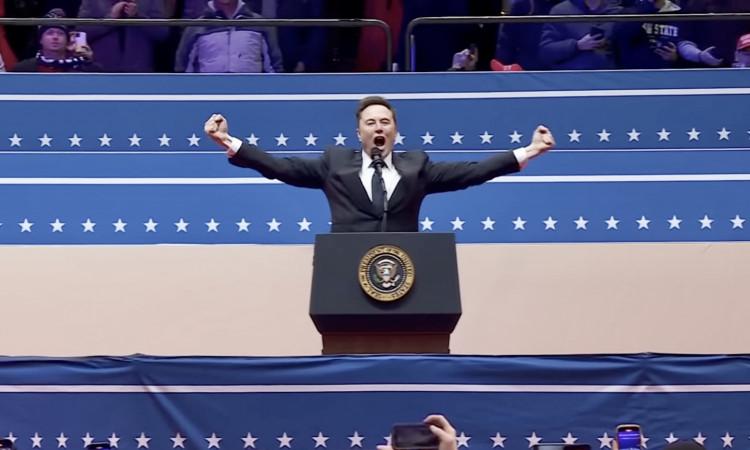Elon Musk, once the central figure of Donald Trump's second-term agenda to overhaul the federal government, is retreating from his role atop the Department of Government Efficiency (DOGE) as political backlash grows and Tesla reports steep losses. Musk, who had pledged to eliminate $2 trillion in "waste and fraud," told reporters and investors he will scale back his Washington presence beginning in May.
Musk, 52, said on an April 22 Tesla earnings call that he would now devote only "a day or two per week" to DOGE. "There's been some blowback for the time I've been spending in government," he said. Tesla's net income plunged 71% in the last quarter, and Musk has blamed mounting protests and vandalism on those dependent on government waste.
DOGE, a loosely structured White House initiative led by over 100 Musk allies embedded across federal agencies, was tasked with implementing mass terminations and eliminating federal programs without congressional approval. In its first 100 days, the initiative claimed $160 billion in cost savings-far less than Musk's earlier projections. "$160 billion, but who's counting?" Musk quipped during a Cabinet meeting last week.
President Trump has praised Musk as a "genius," and on April 23 told reporters, "He was a tremendous help, both in the campaign and what he's done with DOGE." Still, Trump's references to Musk have shifted to the past tense. "He was always at this time going to ease out," Trump added, as Musk's status as a "special government employee"-limited to 130 days annually-approaches its May cutoff.
Musk's role has diminished alongside mounting internal rifts. He clashed with Treasury Secretary Scott Bessent over IRS cuts and called top trade adviser Peter Navarro a "moron" after Navarro dismissed Musk's tariff concerns. Musk had urged a "free trade zone between Europe and North America," a position in direct conflict with Trump's 145% import duties.
The tensions spilled into public view when Musk criticized Trump's tariff regime during Tesla's April 21 earnings call. "I'll continue to advocate for lower tariffs rather than higher tariffs, but that's all I can do," Musk said. Navarro responded by mocking Musk as "not a car manufacturer-he's a car assembler."
Musk also faced opposition from Secretary of State Marco Rubio over delays in executing agency cuts. In March, Musk reportedly accused Rubio during a closed-door Cabinet meeting of dragging his feet, according to The New York Times.
Musk's growing liability has not gone unnoticed by Trump loyalists. Steve Bannon accused Musk and other "oligarchs" of diluting the MAGA agenda. The Quinnipiac University poll released in April found that 57% of voters believe Musk holds too much power in the Trump administration. Aggregated data compiled by Nate Silver showed Musk's unfavorability rating has reached 53.4%, with just 39.2% viewing him favorably.
DOGE's real fiscal impact remains contested. The nonprofit Partnership for Public Service estimates that mass layoffs, buyouts, and administrative disruptions have cost taxpayers $135 billion in FY2025 alone. Nonetheless, the group remains the centerpiece of Trump's effort to dismantle federal agencies such as USAID and the CFPB, and to reduce staffing at others-including a 40% cut to the IRS.
The White House says DOGE will continue operations until July 4, 2026, per Trump's Day 1 executive order. The date coincides with the 250th anniversary of the Declaration of Independence and marks the program's planned termination.
Musk has kept some presence on the White House campus, though he no longer works from the West Wing. His staff remains active in the Eisenhower Executive Office Building. Musk said he would work on DOGE "for as long as the president would like me to do so." "But starting next month, I'll be allocating far more of my time to Tesla now that the major work of establishing the Department of Government Efficiency is done," He added.






